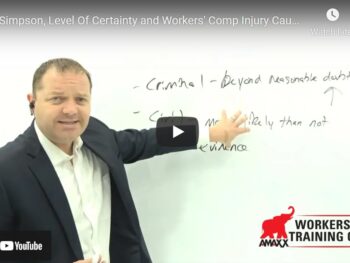For example, in a North Carolina case, Hassell v. Onslow County Bd. of Educ., 362 N.C. 299, 661 S.E.2d 709 (2008), the state supreme court, in a divided opinion, affirmed a denial of benefits to a teacher who claimed her general anxiety disorder condition was compensable because it was caused by the stresses and strains of dealing with her unruly classes.
One justice dissented, noting that while the majority had disavowed any language from the state Industrial Commission premising compensability on the absence of fault-the Commission had indicated the cause of the teacher's anxiety disorder was her "inadequate" job performance-the majority's findings had failed to address whether the Commission, and the state's Court of Appeals, had relied upon the erroneous premise. [See Larson's Workers Compensation Law, Ch. 32, § 32.02 n2]
http://www.lexisnexis.com/community/workerscompensationlaw/ Copyright 2010 LexisNexis. All rights reserved. This material is excerpted from Larson’s Workers Compensation Law. Reprinted with permission.
SUBSCRIBE TO: Workers Comp Resource Center Newsletter
Do not use this information without independent verification. All state laws vary. You should consult with your insurance broker or agent about workers comp issues.






















